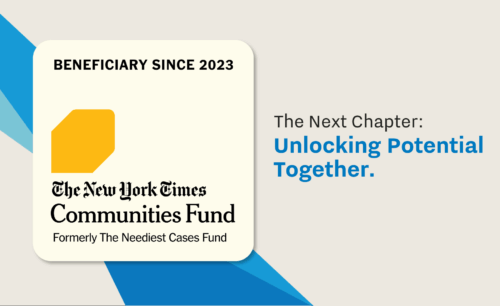
Smart Money Moves: Advice from a CFO for Career Changers
Smart Money Moves: Advice from a CFO for Career Changers
Starting a new career path can be both thrilling and intimidating. You aspire to work in technology, envisioning rewarding jobs, but worry about paying bills during the transition. This fear often prevents people from changing careers. Organizations including Per Scholas offer solutions.
Per Scholas offers technology training to many individuals, including those seeking to change careers. These learners come from diverse backgrounds and possess varied work experiences, yet many share a common aspiration for a new career. Our training, career coaching, and job placement strategies have resulted in over 2,600 Per Scholas alumni launching tech careers in 2023 alone, with total first-year earnings exceeding $127 million.
Per Scholas CFO, Pam Kingpetcharat, is a resource for our career changers. She bases her advice and guidance on practical experience and empathy for each learner. We sat down with Pam to discuss some smart money moves you can make if you’re considering a career change.
Budgeting Through Training
We asked Pam, “What’s one thing you recommend learners prioritize as they pursue training for a career change?” Her answer was clear and firm: they must prioritize a realistic budget.
“During training, your income might be temporarily reduced, so tracking your spending becomes more important than ever,” Pam said.
When considering personal budgeting, the first thought might be to reduce expenses. Although you may need to reduce certain costs, effectively planning and monitoring your spending is often enough. A simple, practical budget doesn’t need to be overly limiting or difficult to handle.
For example, learners might adopt a “50/30/20” style budget. In this method, 50% of income is set aside for needs like rent, groceries, and utilities; 30% goes toward wants like entertainment and dining out; and 20% is set aside for savings and repaying debts. Digital budgeting tools, available online or as smartphone apps, can help you manage the 50/30/20 system or other budgeting methods.
Planning for Job Gaps
Gaps in employment are common for career changers, especially between completing training and starting their first job in a new field. We asked Pam, “What should learners consider when preparing for potential income gaps?” She acknowledges this can be a tricky time, but it’s essential to be prepared and try new things to keep money coming in.
“This highlights the importance of saving money,” Pam said. “Even small, regular savings can accumulate into a substantial buffer you can use when needed.”
The gig economy provides opportunities to keep your finances solvent until you land a job in your chosen field. Those with tech industry training, in particular, can likely find short-term work on specific projects.
“Freelance or gig work can provide financial support when you need it. Project-based work is also a great way to get experience and make connections, utilizing your new skills,” Pam said.
Saving for the Future
Landing a tech industry job based on your training can launch a new chapter in your career. It can also represent new financial beginnings. We asked Pam, “What’s the best beginner step for long-term financial wellness?” She shared a few pointers with us.
“Saving is so important, no matter where you are in your financial journey,” Pam said. “The power of compound interest is like magic. Even if you start by putting $50 a month into a retirement account, that amount compounded over decades can become a significant sum.”
You can make saving easy by automatically transferring your paycheck to a savings or investment account. And take advantage of employer-matched retirement plans, such as a 401(k). “The employer contribution is essentially free money,” Pam said.
BONUS: Do’s and Don’ts From Our CFO
Saving is always a smart money move, but there are things you should and should not do, regardless of where you are in your career journey. It’s all part of financial literacy. Pam shared a few evergreen do’s and don’ts with us:
Do:
- Create a basic budget by tracking your income and expenses.
- Track all spending using an app, spreadsheet, or notebook.
- Ask an expert when you don’t understand a particular financial matter.
Don’t:
- Overspend during job transitions.
- Take on unnecessary debt.
- Ignore your credit score, as a good credit score means better rates on loans and other financial products.
Financial Literacy is Part of Your Tech Career Journey
A career change is a bold step but also an investment in yourself. Pursuing training to break into the tech sector is thrilling but requires careful planning. Too many people let their dreams of a tech career go by the wayside because they don’t see how they can manage it financially. But, as Pam’s advice shows, if you make financial literacy a part of your tech career journey, you can turn your dreams into reality.
Per Scholas is committed to supporting learners along their new career paths with no-cost tuition, state-of-the-art training programs, career coaching, and placement services. You don’t have to handle the financial details of a career change alone. To learn more about our holistic tech training services, contact Per Scholas today.
Sign up for our Monthly Impact Report
More News

Donate Now
Your support makes a powerful difference in our ability to build a technology talent training solution that creates greater access and equity.

